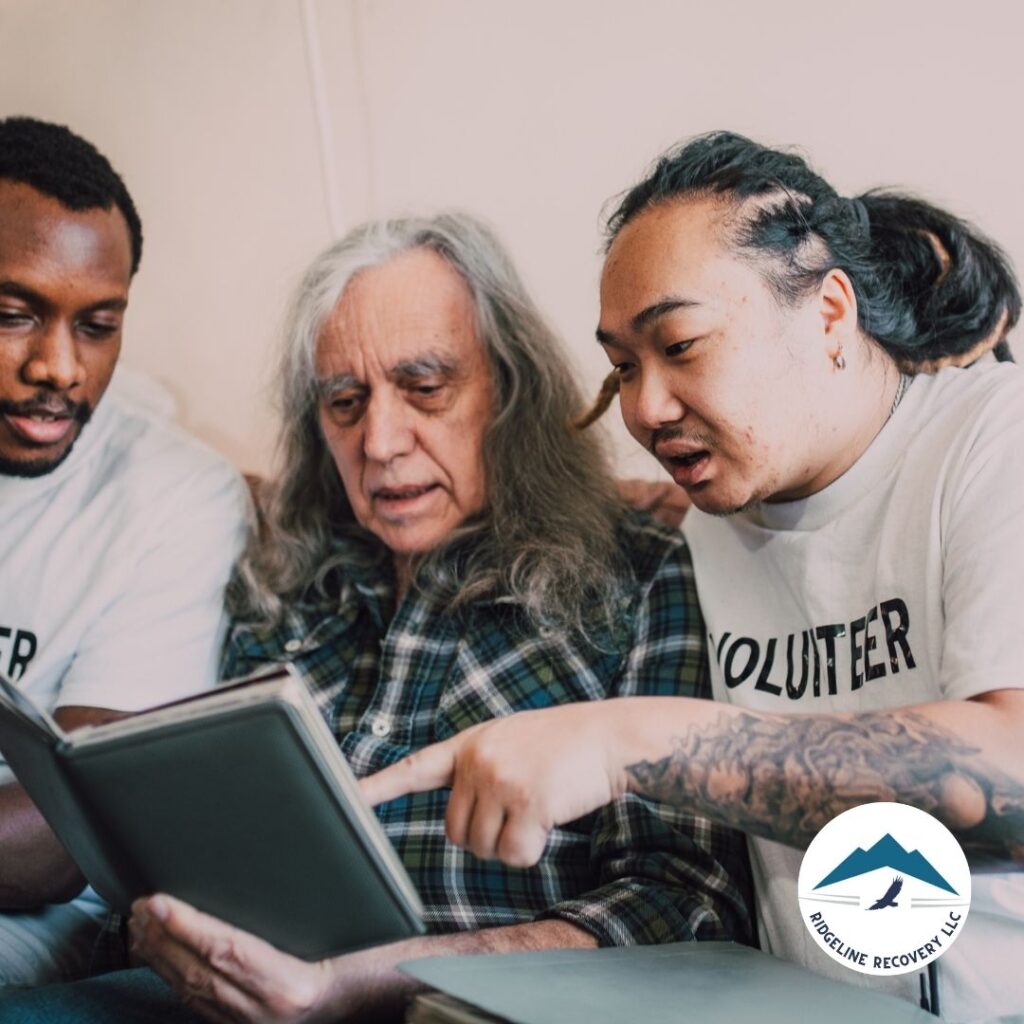Struggling with addiction? Wondering if therapy’s the solution or just another dead-end?
Let’s talk real. Overcoming addiction isn’t some fluffy goal you put on your vision board and manifest. It’s gritty. It’s ugly. But with the right addiction treatment, it’s possible to come out stronger than ever. For anyone in Columbus, getting Addiction Treatment Columbus is where the journey starts. And therapy? It’s your compass to make sure you don’t go off course.
Why therapy? Because it’s more than just talking.
Therapy’s like rewiring the whole mindset that got you into addiction in the first place. We’re talking practical steps, proven tools, and no-nonsense approaches to rebuild your life—one session at a time.
The Real Problem: Why Overcoming Addiction Takes More Than Willpower
A lot of people think addiction’s all about “just quitting.” Ever heard someone say, “Just be strong and stop”? They’ve clearly never dealt with dts delirium, acute withdrawal, or the intense need to go back to a substance even when you hate everything about it.
The truth? Willpower’s not enough. That’s like trying to drive a car with a broken engine and thinking pure determination will get you down the highway.
This is where Addiction Treatment Columbus comes in.
Why Columbus Needs Real, Effective Addiction Therapy
Columbus has its fair share of addiction cases—from alcohol to opioids, to “designer drugs” like Ecstasy. Therapy options are everywhere, but what actually works?
- Inpatient Drug Rehab Facilities Near Me
- Intensive, 24/7 support.
- For people who need a controlled environment and can’t risk outside triggers.
- Outpatient Addiction Treatment Near Me
- For those balancing work, family, or other commitments.
- Structured therapy you can work around your schedule.
- Holistic Therapy
- Not just about getting sober but finding whole-life balance.
- Incorporates everything from mental health to nutrition and mindfulness.
Columbus needs these options because addiction doesn’t discriminate. Whether it’s alcohol, fentanyl, or ecstasy—each case needs personalized therapy that digs deep into the why, not just the what.
So, What Does Therapy Actually Do? (Beyond Just Talking)
Therapy in Addiction Treatment Columbus is less about lying on a couch and more about serious rewiring of the brain. Here’s what therapy really means in the addiction game:
1. Understanding Triggers
- Every addiction has its own trigger points. Therapy identifies these.
- Your therapist works with you to build a “mental firewall,” blocking the urge before it even starts.
2. Coping Mechanisms
- Let’s say speed potency drives your cravings for stronger substances.
- Therapy offers ways to handle cravings without needing to escape.
3. Addressing Mental Health (Because Addiction Is Often Tied to Mental Health)
- Mental Health Therapist Near Me options mean getting expert help for underlying issues.
- Depression, anxiety, PTSD—these can all fuel addiction. Therapy treats both sides.
4. Support Systems
- Ever heard the phrase, it takes a village? Same goes for addiction recovery.
- Therapy helps you set up a circle of support so you don’t have to rely on willpower alone.
5. Accountability (No More Excuses)
- Addiction can be isolating. With therapy, there’s someone checking in, holding you accountable.
- This structure makes relapse a lot less likely.
Therapy Types that Work in Addiction Treatment Columbus
So, what kind of therapy is best for addiction? Here’s the breakdown of popular and effective therapy models in Columbus:
1. Cognitive Behavioral Therapy (CBT)
- A top choice for addiction.
- Identifies and changes negative thinking patterns fueling your addiction.
2. Dialectical Behavioral Therapy (DBT)
- Focuses on regulating emotions and managing distress.
- Helpful for individuals struggling with trauma, often linked to addiction.
3. Motivational Interviewing
- Empowers you to make changes by breaking down resistance.
- For those feeling “stuck,” it’s a game-changer.
4. Group Therapy (The 12-Step Method)
- You’re not alone. Group therapy reminds you of this.
- Sessions build camaraderie and collective support—a core part of the AA 12-Step Plan.
5. Holistic Approaches (Mind-Body-Spirit Connection)
- Therapy that incorporates meditation, yoga, or even nutritional counseling.
- Think of it as treating the root cause, not just the symptoms.
Why Columbus Needs Vivitrol and Med-Assisted Therapy
Vivitrol Clinics Near Me are part of Columbus’s big game plan for opioid addiction. What does Vivitrol do?
- Blocks Opioid Cravings: Makes relapse less likely.
- Safe in a Controlled Setting: When managed in a Vivitrol clinic near me, it’s highly effective.
- Works for Alcohol Dependency Too: Dual-action for those battling alcohol addiction alongside opioids.
For those wondering “methadone vs. suboxone”—Vivitrol stands as a third option. Not a cure-all, but a powerful support.
Handling Withdrawal Like a Pro
Withdrawal’s often the breaking point for people trying to quit. Here’s what you can expect with the right Addiction Treatment Columbus:
- Acute Withdrawal: Includes serious symptoms like dts delirium tremens and dilaudid effects.
- Physical Detox Support: Safe, monitored detox that ensures your body purges itself in the healthiest way possible.
- Mental Health Support During Detox: Therapy through withdrawal to handle cravings and psychological effects.
FAQs: Quick Answers to Real Questions
Q: What’s the difference between inpatient and outpatient addiction treatment?
A: Inpatient means staying in a facility 24/7; outpatient lets you return home daily.
Q: How does Vivitrol work?
A: Vivitrol blocks opioid and alcohol cravings, making relapse less likely.
Q: What if I’m not ready for therapy?
A: That’s normal. Therapy meets you where you are, starting with just talking through your thoughts. It’s not about forcing change; it’s about guiding you to want it.
Q: Can I do alcohol detox at home?
A: It’s risky. Alcohol detox needs monitoring to avoid severe symptoms like delerium tremens.
Breaking Down Barriers to Addiction Treatment Columbus
Overcoming addiction is about more than just quitting; it’s about facing the barriers that keep you stuck. Addiction creates a cycle that’s hard to break, and Addiction Treatment Columbus works to dismantle these walls. Here’s how therapy helps with this and the steps you can take to move forward.
Common Barriers to Treatment and How Therapy Helps
- Denial of the Problem
- It’s easy to downplay an addiction, especially when the stigma around “addicts” often paints an unfair picture.
- Therapy helps by providing an unbiased space to confront addiction honestly and without judgment. It’s a mirror, reflecting back the reality so you can move forward.
- Fear of Judgment
- Fear of others’ opinions is a major hurdle for many seeking addiction help.
- Addiction therapy services provide a confidential, supportive environment. Talking to someone who understands addiction professionally helps reduce self-blame and build self-acceptance.
- Financial Concerns
- Therapy can seem costly, but many drug and alcohol rehab near me facilities offer payment plans, sliding scales, and financing options.
- Plus, therapy isn’t just an expense—it’s an investment in your future health and well-being.
- Lack of Knowledge about Addiction
- Many people don’t understand addiction’s power or believe it’s a matter of weak will.
- Addiction Treatment Columbus therapists break down what addiction truly is, helping families understand it’s not a choice but a disease.
- Fear of Withdrawal and Physical Symptoms
- Acute withdrawal can be brutal, often deterring people from getting help.
- Therapy includes support from addiction specialists to manage symptoms and avoid triggers.

Building a Strong Foundation with Addiction Treatment Columbus
Successful recovery starts with a strong foundation. With Addiction Treatment Columbus, you’ll find a combination of therapy methods designed to support you at each step.
1. Mental Health Support
- Addiction and mental health are connected. For this reason, mental health services near me are essential, particularly for managing co-occurring issues like anxiety, depression, or trauma.
- Mental health treatment centers near me often partner with addiction centers to provide a dual approach, addressing both mental health and addiction.
2. Physical Detoxification
- Detoxification near me helps the body cleanse itself of toxins, preparing it for full recovery.
- Therapy plays a role here, guiding individuals through the mental challenges of detox and preparing for the journey ahead.
3. Setting Goals with a Clear Path
- Goal setting is crucial. Without it, recovery can feel like wandering in the dark.
- Therapists help break down goals into achievable steps, like finding detoxes near me or joining a recovery center. They teach ways to stay accountable and track your progress.
The Power of Therapy in Addiction Treatment Columbus
Therapy is a powerful tool, but the real question is: how does it actually create change?
Therapy as a Support System
In Addiction Treatment Columbus, therapy creates a support system like no other. You might be wondering why support groups or loved ones aren’t enough. They help, but therapy provides:
- Objective Insight
- Unlike friends or family, therapists see things clearly without personal involvement.
- They can address blind spots you might overlook, helping you understand behaviors you can’t see.
- Customized Coping Strategies
- Therapists offer tailored strategies based on your personal triggers and needs, going beyond one-size-fits-all advice.
- For example, if stress drives your addiction, therapists might work with holistic therapy methods like breathing exercises or mindfulness to manage it.
Therapy and Family Dynamics
Addiction doesn’t just impact you—it impacts everyone around you. Therapy addresses this through family therapy sessions that bring healing to relationships damaged by addiction.
Why Holistic Therapy Is on the Rise in Columbus
The rise of holistic therapy in Columbus is not a trend; it’s a response to the need for well-rounded recovery options that address the mind, body, and spirit.
- Mindfulness Practices
- Practicing mindfulness reduces stress and improves focus. Techniques include meditation, yoga, and breathing exercises.
- These approaches help you stay present, calming the mind when cravings hit or negative thoughts arise.
- Nutritional Counseling
- Nutrition is vital. A balanced diet supports physical health, and some foods help reduce cravings or stabilize mood.
- Mental health hospitals near me often include nutrition plans as part of mental health services in recovery programs.
- Physical Activity
- Exercise is a powerful form of therapy on its own. It releases endorphins, reduces stress, and provides a healthy outlet for energy.
- Adding physical activity to your routine can help make sobriety sustainable and enjoyable.
Medically Assisted Treatment (MAT): A Key Component in Addiction Treatment Columbus
For many in Addiction Treatment Columbus, medication-assisted treatment (MAT) is a lifeline, especially for opioid addiction.
Vivitrol and Methadone: What’s the Difference?
- Vivitrol Clinics Near Me
- Vivitrol blocks the high of opioids, reducing cravings and making relapse less tempting.
- It’s particularly effective for opioid and alcohol addiction, with monthly injections helping stabilize recovery.
- Methadone vs. Suboxone
- Methadone: Used in MAT programs to ease opioid withdrawal, it has a slow-release effect, making it less prone to abuse.
- Suboxone: Works similarly but is less addictive and generally preferred for those wanting to avoid methadone’s intensity.
Both options provide support in inpatient substance abuse treatment near me facilities, ensuring patients receive safe and monitored care.
Managing Long-Term Sobriety in Columbus
Achieving sobriety is only half the battle; maintaining it is where therapy really shines. Let’s talk about what long-term success looks like in Addiction Treatment Columbus.
Staying Connected with Your Support System
Long-term recovery thrives on consistent support.
- AA 12-Step Plan: Many inpatient drug rehabs near me follow the 12-step model, a peer-supported program focusing on self-improvement, accountability, and community.
- Sober Living Communities: These communities are designed to keep individuals accountable while living in a substance-free environment.
- Family Therapy: Keeps family bonds strong and promotes understanding, which is essential in the long run.
Life Skills for Sustainable Recovery
- Time Management and Routine
- Staying busy can help avoid relapse. Therapy programs teach how to build a daily routine that keeps you productive, grounded, and forward-focused.
- Learning to Manage Stress
- Therapy arms you with tools to manage stress, whether that’s mindfulness practices or practical methods for reducing anxiety.
Understanding Relapse: It’s Not a Failure
Relapse is common, but it’s also a learning experience. In Addiction Treatment Columbus, therapists provide a safe space to talk about setbacks and identify how to improve.
- Triggers and Avoidance
- Therapy helps identify triggers and develop ways to avoid them. Whether it’s certain places, people, or situations, creating strategies around triggers can be the key to avoiding a setback.
- The Role of Mindfulness
- Holistic therapy promotes mindfulness, a method that keeps you focused on the present and aware of your thoughts.
- When urges arise, mindfulness techniques provide clarity, helping you recognize thoughts and emotions without acting on them.
- Reevaluating Goals
- Therapy helps refine your goals over time. As you progress, you may find new goals that keep you on track and motivated.
Addiction Recovery in Columbus: Building a New Identity
Recovery isn’t just about stopping addiction; it’s about becoming a new person. Here’s how Addiction Treatment Columbus supports this transformation.
Creating a Healthy Lifestyle
- Balanced Diet
- Maintaining a healthy diet strengthens the body and mind, making it easier to manage emotions and avoid cravings.
- Physical Activity
- Physical activity not only keeps the body fit but also releases endorphins, the body’s natural mood boosters.
- Many inpatient drug rehabilitation programs incorporate physical exercise as part of the recovery journey.
Finding Purpose and Passion
- New Hobbies and Skills
- Therapy encourages you to explore new hobbies. Whether it’s art, music, or writing, finding something you’re passionate about fills the gap left by addiction.
- Connecting with Community
- Volunteering or joining local organizations builds a sense of purpose and gives back to the community.
FAQs
Q: How often should I go to therapy?
A: It depends. Some may need daily sessions initially, while others might attend weekly. Addiction Treatment Columbus therapists tailor frequency based on your needs.
Q: Can I recover without therapy?
A: Recovery is possible without therapy, but it’s much harder and relapse is more likely. Therapy provides tools and support that make success sustainable.
Q: What’s the difference between AA and other recovery programs?
A: AA follows the 12-step model, focusing on community and a spiritual approach.
Specialized Approaches in Addiction Treatment Columbus
Addiction Treatment Columbus isn’t just about a single method; it’s a combination of carefully tailored approaches to suit individual needs. From dual-diagnosis treatment to trauma-informed care, each type of therapy plays a specific role in ensuring recovery is thorough and lasting.
Dual-Diagnosis Treatment: Addressing Mental Health and Addiction Together
A significant percentage of individuals struggling with addiction also face mental health challenges such as anxiety, depression, or PTSD. Dual-diagnosis treatment provides simultaneous support for both conditions.
- Benefits of Dual-Diagnosis Treatment
- It prevents one issue from aggravating the other, ensuring that both addiction and mental health are managed in tandem.
- It provides clarity, as the root causes of addiction are often linked to mental health struggles. By treating both, recovery becomes more comprehensive.
- Therapeutic Techniques for Dual-Diagnosis
- Cognitive-Behavioral Therapy (CBT): Commonly used to manage symptoms of both addiction and mental health conditions, CBT helps patients understand their behaviors, triggers, and how they can make better choices.
- Dialectical Behavior Therapy (DBT): DBT is useful for managing intense emotions and is particularly effective for those dealing with mood disorders alongside addiction.

Trauma-Informed Care in Addiction Treatment Columbus
Many people facing addiction have experienced trauma, whether in childhood or adulthood. Trauma-informed care ensures that therapy addresses these experiences without re-triggering or causing additional distress.
- Why Trauma-Informed Care Matters
- Trauma-informed care recognizes that trauma can be a central part of addiction and provides sensitive support, helping individuals process their past in a safe, supportive way.
- It reduces the risk of re-traumatization and ensures that the patient feels safe throughout their recovery journey.
- Techniques Used in Trauma-Informed Therapy
- Eye Movement Desensitization and Reprocessing (EMDR): EMDR therapy helps patients process traumatic memories so they no longer impact their daily lives.
- Somatic Experiencing: A therapy that focuses on how trauma affects the body, helping individuals release stored trauma-related energy and reduce stress.
Establishing a Structured Recovery Plan with Addiction Treatment Columbus
To overcome addiction, having a structured recovery plan is crucial. Addiction Treatment Columbus provides personalized recovery plans that act as blueprints for recovery, guiding individuals from detox through to aftercare.
Components of a Successful Recovery Plan
A comprehensive recovery plan covers physical, mental, and social support aspects, ensuring a well-rounded approach.
- Physical Health Goals
- Regular medical check-ups to monitor recovery progress.
- A balanced diet and physical fitness routine to support overall well-being, enhance mental health, and decrease cravings.
- Mental and Emotional Wellness Goals
- Regular therapy sessions (individual and group) to provide ongoing emotional support.
- Specific coping mechanisms to deal with triggers, stress, and cravings.
- Social and Support Goals
- Developing a strong support system through support groups and peer networks.
- Setting boundaries with social contacts that may be unhelpful or triggering to the recovery process.
Inpatient vs. Outpatient Programs in Addiction Treatment Columbus
Choosing the right type of program is essential in recovery. In Addiction Treatment Columbus, both inpatient and outpatient programs offer unique advantages.
Inpatient Addiction Treatment Columbus Programs
Inpatient programs offer 24/7 medical and emotional support, making them suitable for those requiring a controlled environment away from triggers.
- Advantages of Inpatient Programs
- Constant access to healthcare professionals ensures that any medical issues, including withdrawal symptoms, are promptly addressed.
- Inpatient settings remove individuals from their usual environment, helping them avoid temptations or risky social connections.
- Typical Structure of an Inpatient Program
- Detox Phase: Initial phase focused on safely eliminating substances from the body.
- Therapy Phase: Involves individual therapy, group sessions, and family therapy to address underlying issues.
- Skills Training: Inpatients participate in activities that teach coping skills, relapse prevention, and life management.
Outpatient Addiction Treatment Columbus Programs
For individuals who cannot commit to a residential program, Addiction Treatment Columbus offers flexible outpatient options.
- Benefits of Outpatient Programs
- Patients can maintain their regular work, school, or family commitments while receiving treatment.
- It’s a more affordable option, as individuals are not paying for room and board.
- Typical Structure of an Outpatient Program
- Intensive Outpatient Program (IOP): Patients attend several therapy sessions weekly and participate in support groups.
- Partial Hospitalization Program (PHP): Offers more support than IOPs, allowing patients to spend most of the day in treatment but go home at night.
- Standard Outpatient Program: Typically, one or two sessions per week that focus on sustaining sobriety.
Holistic Healing: Addressing Body, Mind, and Spirit in Recovery
Holistic treatment in Addiction Treatment Columbus adds another dimension to recovery by addressing all aspects of health.
Physical Health in Recovery
- Nutritional Therapy
- Addiction often leads to poor dietary habits that affect physical and mental health. Nutritional therapy helps restore balance, focusing on foods that stabilize mood and energy.
- Exercise Programs
- Exercise promotes endorphin release, reducing stress and improving mood. Inpatient rehab Columbus Ohio often includes physical fitness as part of the daily schedule.
Mindfulness and Mental Clarity
- Meditation and Mindfulness Practices
- Meditation teaches individuals to remain present, manage cravings, and reduce stress. It’s a staple in holistic addiction treatment.
- Art and Music Therapy
- These creative outlets help individuals process complex emotions and trauma in non-verbal ways, often leading to breakthroughs in self-awareness.
Spiritual Support in Recovery
For those interested in spiritual growth, Addiction Treatment Columbus offers faith-based programs or spiritual guidance, helping individuals find peace and purpose through their beliefs.
The Importance of Aftercare in Addiction Treatment Columbus
Recovery doesn’t end once formal treatment is complete. Aftercare programs are essential for maintaining long-term sobriety.
Types of Aftercare Programs
- Sober Living Homes
- Sober homes provide a structured, supportive environment where individuals can practice life skills and adjust to sober living.
- Outpatient Therapy and Counseling
- Regular therapy sessions reinforce coping mechanisms, address new triggers, and provide continuous emotional support.
- Support Groups and Peer Networks
- Support groups like Alcoholics Anonymous (AA) or Narcotics Anonymous (NA) offer consistent social support from peers who understand the struggles of addiction.
Setting and Achieving Long-Term Goals in Recovery
Aftercare plans involve setting meaningful goals that help patients stay motivated, such as:
- Career goals or further education
- Building and nurturing healthy relationships
- Personal fitness or wellness achievements
Addiction Treatment Columbus: Success Stories and Community Impact
Every story of recovery is unique. Let’s explore how Addiction Treatment Columbus transforms lives, highlighting real community impact.
Case Studies: Turning Challenges into Success
- Overcoming Opioid Addiction
- Many individuals in Columbus addiction treatment centers have overcome opioid addiction, thanks to MAT and therapy. They’ve rebuilt relationships, pursued careers, and become role models in their communities.
- Rebuilding After Alcohol Dependency
- For individuals recovering from alcohol addiction, support from detox Columbus Ohio programs and therapy has enabled them to reclaim their lives. With a combination of counseling and relapse prevention, they’ve achieved sobriety.
Community Impact and Outreach Programs
Beyond individual recovery, Addiction Treatment Columbus supports broader community outreach to educate and reduce stigma around addiction. Programs include:
- Educational Workshops: To inform the public about addiction and available resources.
- Family Support Groups: Helping families understand addiction and support their loved ones without enabling harmful behavior.
FAQs: Common Questions about Addiction Treatment Columbus
Q: How long does it take to recover from addiction?
A: Recovery times vary. Generally, detox can take a few days to weeks, while full recovery is ongoing and involves lifelong commitment.
Q: Is medication-assisted treatment (MAT) effective?
A: Yes, MAT has proven effective for opioid and alcohol addiction, helping individuals manage cravings and focus on therapy.
Q: Can I receive treatment without leaving my job or school?
A: Outpatient programs allow individuals to maintain their daily responsibilities while receiving treatment, making them ideal for those unable to attend inpatient facilities.
Q: How do I find the best rehab center in Columbus?
A: Look for licensed, reputable centers that offer a range of therapies and personalized care plans, as provided by Addiction Treatment Columbus.
Rebuilding Relationships During and After Addiction Recovery
Addiction can damage relationships, but Addiction Treatment Columbus offers tools for mending these bonds.
Family Counseling
Family counseling brings families together, helping rebuild trust and communication. It teaches families how to support their loved ones in ways that promote recovery.
- Forgiving the Past
- Therapy sessions guide individuals and their families through discussions on past hurts, providing a safe space for forgiveness and healing.
- Establishing Boundaries
- Healthy boundaries help prevent enabling behavior and encourage independence in recovery.
Takeaways: Why Therapy Is Your Secret Weapon
Therapy is a real, raw approach to overcoming addiction. It’s not easy, and it’s not magic, but it works. Addiction Treatment Columbus options provide therapy that’s personalized, evidence-based, and focused on breaking the cycle of addiction for good. Therapy is the bridge between the life you have now and the life you want—minus the addiction.
Need help? Ridgeline Recovery LLC is here to guide you every step of the way.
Call Us Now!
If you or a loved one is struggling with heroin or alcohol dependency, reach out to Ridgeline Recovery Center in Columbus, Ohio, today. At Ridgeline Recovery, we offer a path to hope and healing. Our comprehensive Addiction Recovery services include Addiction Therapy, Addiction Treatment, Vivitrol Clinic and specialized Mental Health Services designed to support your journey to recovery.
We provide Aftercare Programs and Peer Support to ensure you have ongoing assistance after treatment. Our dedicated team offers Case Management and Child Services for those needing extra support. For individuals who prefer a faith-based approach, we offer Faith-Based Recovery options.
Our programs feature Group and Individual Counseling, along with Medication-Assisted Treatment (MAT) to address your unique needs. We also have an Intensive Outpatient Program (IOP) and a Partial Hospitalization Program (PHP) for more structured care.
Our team includes Registered Nurse Services, Psychiatric Services, and Therapeutic Behavioral Services (TBS) to provide comprehensive support throughout your recovery process. We work with various Insurance Coverage plans to help you access the care you need.
Don’t wait—contact us now to start your journey toward a brighter future with Ridgeline Recovery.
For more stories and information Contact Us, visit our Blog page and Stories & Highlights.







